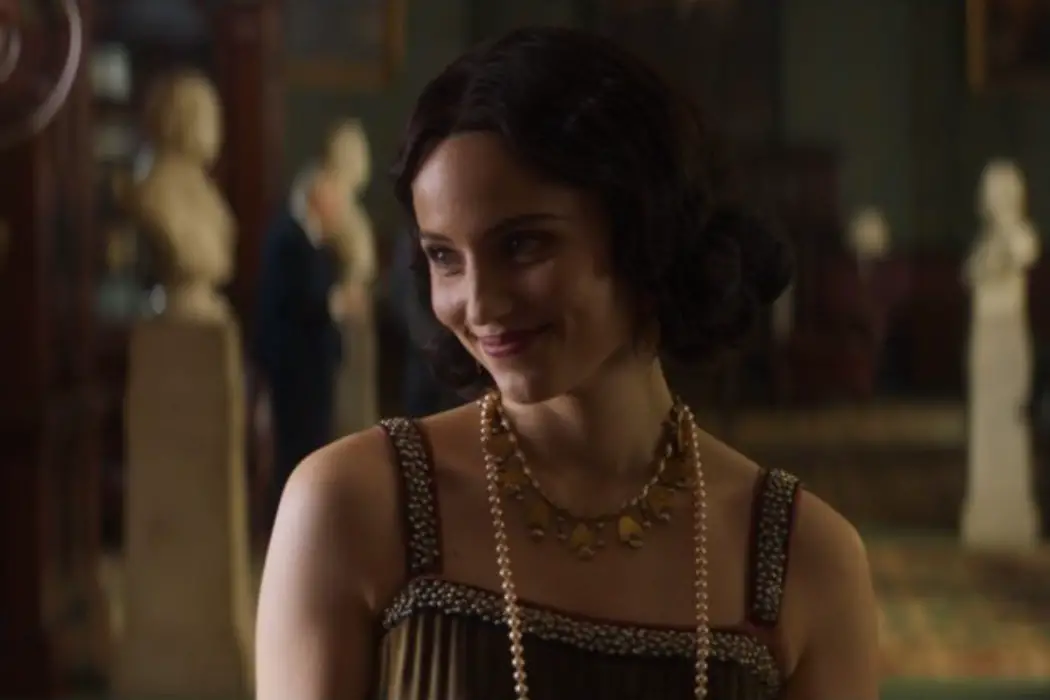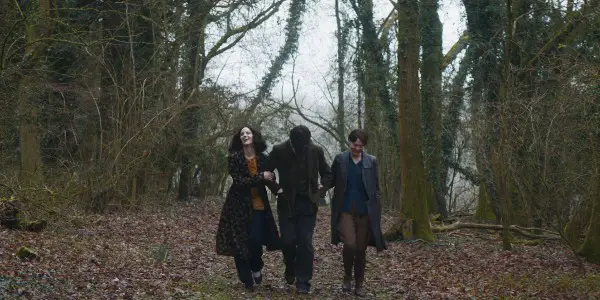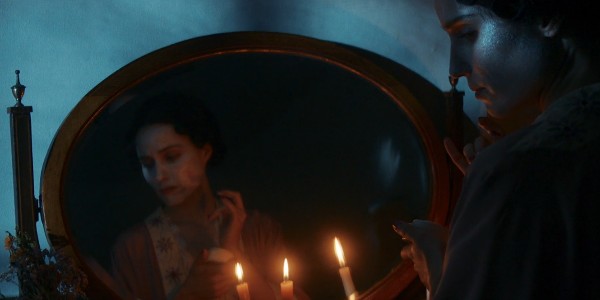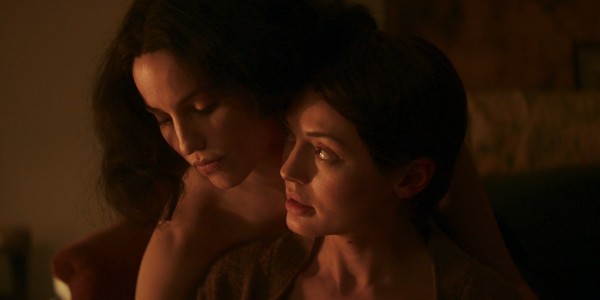THE LAUREATE: A Literary Biopic Exploring The Darkness Of Its Subjects

Amanda Mazzillo is a writer with an MFA in Dramatic…
The Laureate, written and directed by William Nunez, explores the period of time when poet Robert Graves (Tom Hughes) and his wife Nancy Nicholson (Laura Haddock) lived with poet and literary critic Laura Riding (Dianna Agron). The film sets itself up to test the waters of the biopic and the types of stories we can tell in the genre.
At times, The Laureate wonderfully balances haunting moments highlighting the private problems of each character with moments honoring Graves and his poetry.
Challenging the Biopic
The Laureate takes focus on diving into the most sensational aspects of its main focus, creating a film that can stand outside its subject matter, but sometimes the actual subject gets lost.

The Laureate wants to build an exciting film analyzing the unique relationship that developed between Robert, his wife Laura, and Nancy, and this aspect of the film is well-developed, but throughout the film, the characters themselves get conflated with story. After watching, I don’t feel that I know any more about Graves than I knew before watching. The film frames Laura through a one-sided lens of destruction, at times feeling like her only importance is her relationships with poets as a muse.
The Laureate does well in creating a haunting atmosphere underlining the damage of its inhabitants. If you are looking for a dark melodrama that aims its spotlight on emotions and intense situations, The Laureate does well in these regards, but does not spend enough time letting the audience know its characters.
The Laureate creates an interesting visual style through use of shadows and candlelight, recalling the beauty of a haunted house. In The Laureate, the house is haunted by Robert’s war-time memories, while Nancy is haunted by Laura’s presence – through discovering more about herself and feeling like she is losing her family.

The moments of the film which structure Robert’s struggles in writing with his PTSD are some of the most affecting of the film, especially the repeated motif of reality and nightmare. Robert Graves’ family was told he had died during World War I. This repetition of ‘died of wounds” strung through his thoughts and dreams gives us insight into his struggle that pushes him further into despair within the film, leading to his decision to contact Laura Riding.
Performances and Time
The Laureate does a wonderful job of capturing the time period in which it is set. The production design of the film shows the juxtaposition between the home Robert and Nancy shared with their child – in real life they had four children – and the life he lived in London with Laura.
The costume design works well to create a visual dissonance when Laura first enters the cottage at ‘World’s End’ with Robert and Laura. Her clothing and personality – in addition to her American accent – separate her from the calm life Robert and Nancy lived.
Dianna Agron gives a bright and sparkling performance accentuating the personality and, at times, danger of her character. The persona itself comes across a little too villainous, but this comes down to adapting the real story in a way to play up the more melodramatic and ridiculous aspects.
Agron does a great job of balancing the intriguing and dangerous facets of the character. Laura should be enticing and welcoming for both Robert and Nancy, showing them a new way to live. Agron‘s performance gave us time to see her light and appreciate it – with the hints of darkness under the surface.

Through the moments in this film where the platonic living arrangement becomes a secret Ménage à trois, Laura Haddock‘s performance as Nancy finds us pulled into her newfound attraction. Her feelings for Laura earlier in the film feel genuine and we can see her pain when the equality of their group dynamic becomes less clear.
When the trio adds a forth member in the form of Geoffrey Phibbs (Fra Fee), we have seen the darkness of Laura’s mentorship. When Geoffrey begins working with Laura on his writing, we have already seen her almost get Nancy and Robert’s daughter to walk out of an upstairs bedroom window, so we know what she is willing to do. This paints a gloom over Geoffrey’s relationship with Laura from the beginning. We see the light and happiness of his character diminish the more he works with Laura. Fra Fee portrays Geoffrey so well, allowing the audience to really feel his hopeful energy and wish he survives this dynamic in which he found himself.
Conclusion
The Laureate crafts a uniquely haunting atmosphere for its challenging and darker biopic through strong performances and visually captivating moments, but ultimately, the film focuses too much on its plot and not enough on exploring the unique personalities of its characters.
Do you think The Laureate is a good biopic? Which biopics are your favorite? Share your thoughts in the comments.
The Laureate was released January 21, 2021 in the US.
Does content like this matter to you?
Become a Member and support film journalism. Unlock access to all of Film Inquiry`s great articles. Join a community of like-minded readers who are passionate about cinema - get access to our private members Network, give back to independent filmmakers, and more.
Amanda Mazzillo is a writer with an MFA in Dramatic Writing from SCAD and a BA in Writing & Linguistics and Film Studies minor from Georgia Southern University. She enjoys writing comedy and exploring all forms of media. Her Twitter name is a bad pun: @mazzillofirefox












